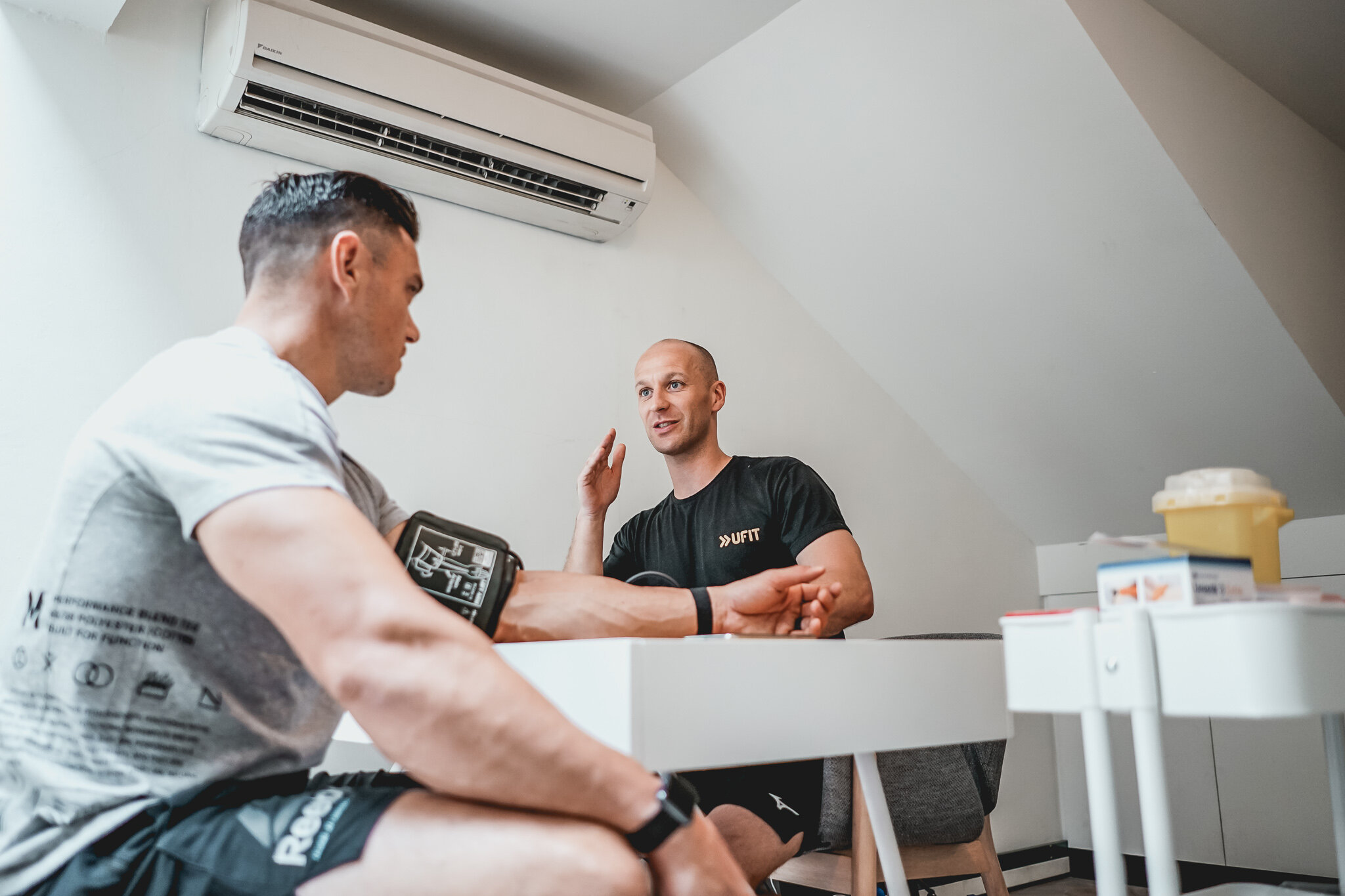Why regular health screenings should become the norm
We ask UFIT’s Stuart Bauld, experienced physiologist, why it’s so crucial to go for regular health check-ups
Text: Hui Yi Phua
credit: UFIT
You may have people around you urging you to go for a health check-up, or you’ve seen plenty of IG and TV ad campaigns on various different health screenings. So you might be wondering — ‘do I really need a health screening? I look and feel healthy, why do I need to go?’. These are very real and valid questions asked by many and to find out more, we spoke to Stuart Bauld, experienced physiologist at UFIT, one of Singapore’s most prominent fitness and health clinics, to get a better understanding of the importance of health screenings.
credit: UFIT
The Importance of Health Screenings
Health screenings enable you to detect particular conditions in early stages. This is especially important for types of conditions that do not develop obvious symptoms and/or signs.
For example, Cardiovascular disease (CVD), which is defined as any disease or condition that affects the heart and/or blood vessels, is commonly referred to as a ‘Silent Killer’. CVD symptoms occur in the background and don’t affect how you feel per se, so they often go unnoticed or brushed off and ignored. This makes it very difficult to identify and prevent cardiovascular events.
In fact, many people are unaware of their cardiovascular problems until a serious medical emergency emerges. That is why it’s so important to go for Cardiovascular Screenings – to spot the ‘silent’ risk factors and take appropriate actions to prevent such catastrophic events from happening. Some of the testing, like the ones we perform at UFIT, can even detect early development of these risk factors.
More education is needed
Public awareness is an important determinant of health screen uptake. Many people are simply unaware of the adverse health risks associated with these silent risk factors. For example, studies have shown that raising public awareness of the risk factors of CVD has been shown to be successful in health screening uptake, so as more education is spread, more people will undertake the appropriate screening tests.
How often should I get tested and what are the different screenings out there?
According to Stuart, beyond a certain age (usually 35 years of age), it is important to undergo a health assessment every 3-6 months. There are a number of different health screens available in Singapore. The majority consists of blood profile assessments, which will measure a number of biomarkers associated with onset of different health concerns or diseases. Don’t also forget to check in with your Doctor about other gender specific health screenings such as smear and well-rounded fertility, STD and gynae tests, breast scans and prostate monitoring.
The UFIT Health Screen is specifically designed to cover all the basic needs to understand how your body is currently functioning and which areas you need to pay a bit more attention to or make an intervention with. Early identification and intervention is not only key to reducing and optimising risk of a cardiovascular event, but also to get the most health benefits from your exercise and activity.
Most of the health screenings in Singapore tend to focus solely on medical management and may not offer much guidance around modifiable lifestyle factors that can make a huge impact.
UFIT Health Screening includes a cardiometabolic screen on top of the measurement of traditional blood markers. This helps in assessing the modifiable risk factors associated with cardiovascular disease, and providing insight into how to optimise them.
Following completion of the test, a prescription is given of the exact exercise and nutrition protocol to follow in order to optimise your health. For the ultimate guidance, the UFIT expert team can supervise through a highly individualised health plan targeting specific needs and goals.
Health Screening and Performance Screening
UFIT offers both Health Screening and Performance Screening. The former is for those who are looking to optimise their health and manage any disease risk factors, while the latter is suited for people who are looking to push their bodies' performance in sport, exercise and activity.
credit: UFIT
The UFIT Health Screen is a contemporary, holistic assessment which measures all the modifiable risk factors associated with CVD. The screen includes:
Body composition assessment
Blood pressure check
Fasted blood glucose test
Glycated haemoglobin test
Blood lipid profile
Lung function test
Resting metabolic rate test
Cardio-respiratory fitness test
credit: UFIT
The UFIT Performance Screen is directed towards individuals looking to take their own training to the next level. Performance testing offers 3 distinct benefits:
Highly accurate training zones can be established based on the individual's own physiology.
You can accurately determine your current fitness level and identify specific areas you may need to focus your training on.
You can assess the effectiveness of your training regime.
In order to identify any limitation in an individual’s aerobic performance, we assess these 3 key elements in metabolic testing:
Cardiovascular limitation – the ability of the heart and circulatory system to deliver oxygen
Respiratory limitation – the ability of the respiratory system to take in oxygen and expire carbon dioxide
Metabolic limitation – the burning efficiency of fat and carbohydrate
By identifying these limitations, we can then design the training intervention to accurately target what needs to be improved. This provides clients with highly individualised training programs and excellent service, optimising the entire training process.
The tests offered within this service include:
VO2max testing
Blood lactate profiling
Stuart Bauld is an Exercise Physiologist at UFIT who specializes in sport-specific strength and conditioning, corrective exercise, physiological testing, and nutritional guidance. Having worked as a Sports Scientist within professional football, Stuart is well experienced in carrying out physiological assessments as well as applying structured, individualized training programs to attain a myriad of goals, including fat loss, increasing lean muscle mass, maximal strength and explosive power.
For more general/booking information on UFIT’s Health Screens, visit their website here.















